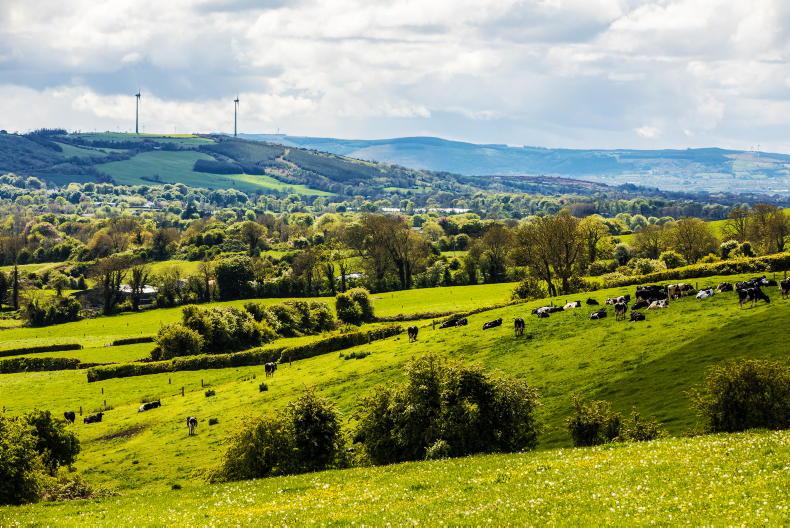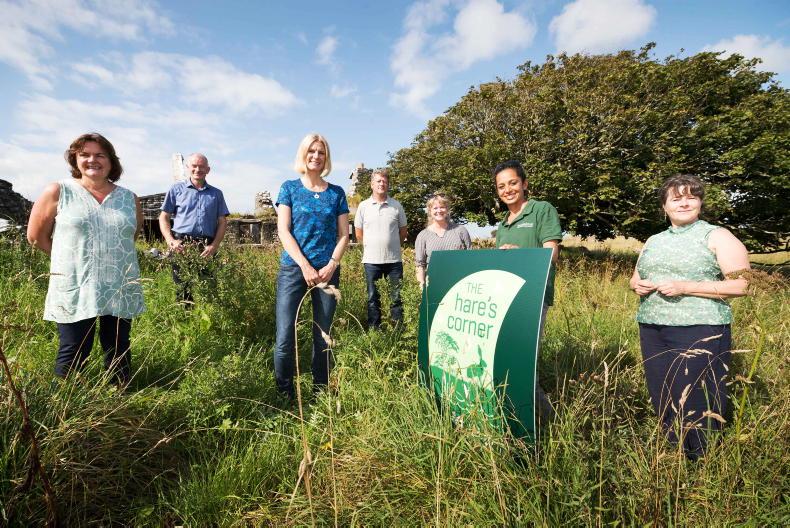The tweet read: “Up the aisle with a full farm and down the aisle with half.” Although written in jest on the happy occasion of the young male farmer tweeter’s wedlock, there is none the less an ingrained fear in the comment. This being that a partnership can break down and threaten the future viability of a farm business.
Katherine O’Leary is writing this week about the Women in Agriculture dialogue that she attended on St Brigid’s Day. I called her to talk through the concerns the event flagged for her. The conversation turned to the prenuptial agreements that were mentioned by Mary Curtin in
">last week’s Irish Country Living. The University of Limerick researcher recommends legislating for prenuptial agreements to make them enforceable as they could, she claims, “help challenge the patriarchal norm in farming communities by giving the marrying in spouse a say and a voice from the outset”. Her theory is that legislation would aid succession planning in that people can “plan and have greater autonomy and certainty over their own life and their farm”.
In the absence of prenups, I explored with Katherine if the law currently negates the concerns that a marital breakdown can cause for a farm. The legal aspects of this have been covered by our solicitor Aisling Meehan on numerous occasions. She wrote previously that it is not the case that a family farm will automatically have to be sold if a marriage breaks down or indeed that the farm will have to be divided in half. The situation and the facts differ in each case.
She explains that the contribution of each party will be taken into account, including the financial and the personal contribution of each party within the marriage and family, particularly where there are children. The length of the relationship and marriage is also a factor, together with the ongoing financial prospects of each individual spouse.
Nevertheless, the law is not a panacea and can work both ways. And with all the law in the world there is no escaping the emotional attachment to land we have in Ireland. Take for example the current discussion surrounding the Gresham House deal with Coillte that assists foreign investors to purchase land to plant forests.
On the one hand, we want trees planted to meet climate change targets but on the other hand, we are not keen on the investment required to support this target coming from abroad. We don’t want faceless foreign investors buying land. We look at them as “vultures” and therefore not to be trusted.
This suspicion is not unfounded due to both our ancient history and our more recent experience through the financial crisis. Our new series on the “Irish land question” with historian Dr Tony Mc Carthy, recounts the former. In the first article, Tony examines ownership of the land from ancient times up to the late 18th century when the dispossession of land from the Irish people was enshrined in law. Works both ways!
Not all partnerships stem from a romantic entanglement; they take various forms and in most cases for succession and economics – they make sense. There is, however, anecdotal evidence that the number of farm partnerships failing is increasing. This week we are starting a new series looking into the legal and financial fallout of the breakup of a farm partnership. If you have questions or want to share your experience please e-mail me directly in confidence.
Read more
Business failure rate rising again post COVID. Is a ‘correction’ gathering pace?
Editorial: I will come back to you on that! Readers views vital
The tweet read: “Up the aisle with a full farm and down the aisle with half.” Although written in jest on the happy occasion of the young male farmer tweeter’s wedlock, there is none the less an ingrained fear in the comment. This being that a partnership can break down and threaten the future viability of a farm business.
Katherine O’Leary is writing this week about the Women in Agriculture dialogue that she attended on St Brigid’s Day. I called her to talk through the concerns the event flagged for her. The conversation turned to the prenuptial agreements that were mentioned by Mary Curtin in last week’s Irish Country Living. The University of Limerick researcher recommends legislating for prenuptial agreements to make them enforceable as they could, she claims, “help challenge the patriarchal norm in farming communities by giving the marrying in spouse a say and a voice from the outset”. Her theory is that legislation would aid succession planning in that people can “plan and have greater autonomy and certainty over their own life and their farm”.
In the absence of prenups, I explored with Katherine if the law currently negates the concerns that a marital breakdown can cause for a farm. The legal aspects of this have been covered by our solicitor Aisling Meehan on numerous occasions. She wrote previously that it is not the case that a family farm will automatically have to be sold if a marriage breaks down or indeed that the farm will have to be divided in half. The situation and the facts differ in each case.
She explains that the contribution of each party will be taken into account, including the financial and the personal contribution of each party within the marriage and family, particularly where there are children. The length of the relationship and marriage is also a factor, together with the ongoing financial prospects of each individual spouse.
Nevertheless, the law is not a panacea and can work both ways. And with all the law in the world there is no escaping the emotional attachment to land we have in Ireland. Take for example the current discussion surrounding the Gresham House deal with Coillte that assists foreign investors to purchase land to plant forests.
On the one hand, we want trees planted to meet climate change targets but on the other hand, we are not keen on the investment required to support this target coming from abroad. We don’t want faceless foreign investors buying land. We look at them as “vultures” and therefore not to be trusted.
This suspicion is not unfounded due to both our ancient history and our more recent experience through the financial crisis. Our new series on the “Irish land question” with historian Dr Tony Mc Carthy, recounts the former. In the first article, Tony examines ownership of the land from ancient times up to the late 18th century when the dispossession of land from the Irish people was enshrined in law. Works both ways!
Not all partnerships stem from a romantic entanglement; they take various forms and in most cases for succession and economics – they make sense. There is, however, anecdotal evidence that the number of farm partnerships failing is increasing. This week we are starting a new series looking into the legal and financial fallout of the breakup of a farm partnership. If you have questions or want to share your experience please e-mail me directly in confidence.
Read more
Business failure rate rising again post COVID. Is a ‘correction’ gathering pace?
Editorial: I will come back to you on that! Readers views vital










SHARING OPTIONS